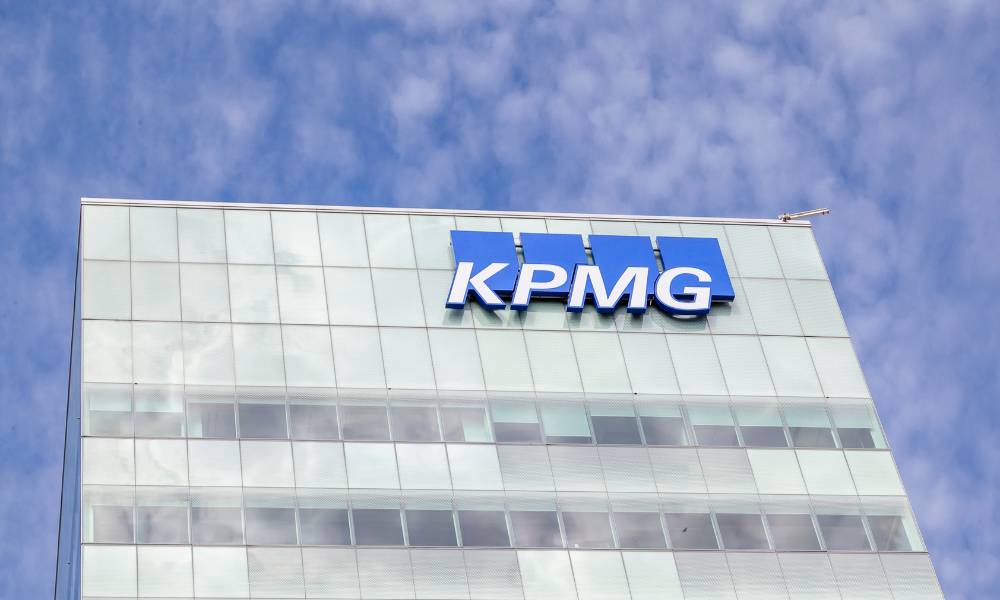Canadian businesses adjusting their supply chains in response to newly implemented 25 percent tariffs on Canadian goods face heightened fraud and cybersecurity risks, according to KPMG in Canada specialists. The accounting firm urged companies to conduct rigorous due diligence when switching suppliers to avoid potential threats, including financial fraud, contract misrepresentation, and cybersecurity breaches.
A recent KPMG in Canada survey found that nearly 44 percent of Canadian businesses are already shifting US-destined exports to third-party countries, while another 44 percent are exploring this option. KPMG experts warned that such rushed transitions could expose businesses to fraudulent suppliers and cybersecurity vulnerabilities.
Myriam Duguay, partner and national forensic leader at KPMG in Canada, emphasized that businesses must be cautious when engaging new suppliers. She warned that companies may overlook essential due diligence procedures to quickly adapt to the tariffs, leaving them vulnerable to deceptive suppliers that misrepresent their capabilities. She explained that businesses must be vigilant about engaging new suppliers that make illegitimate or overstated claims about their capabilities.
Contractual risks also pose a significant concern. New supplier agreements may contain hidden clauses that could be exploited or include false representations about product quality. KPMG advised companies to have legal experts review contracts thoroughly to identify potential red flags before committing to new business relationships.
Payment fraud is another risk, particularly as businesses establish new payment processes with unfamiliar suppliers. KPMG noted that one in five Canadian businesses experienced some form of payment fraud in the past six months, according to Payments Canada. Invoice fraud, where fraudulent invoices are submitted for payment, is a growing concern. Companies should implement strict invoice verification processes to prevent such schemes.
Hartaj Nijjar, national cybersecurity leader at KPMG in Canada, highlighted that engaging new suppliers can increase cybersecurity risks. If these suppliers lack strong security measures, they could become an entry point for data breaches and other cyber threats. He warned that businesses should also be aware of fake suppliers that appear legitimate but are threat actors in disguise. He added that this is becoming more prevalent with the rise of AI-powered deepfakes, making it increasingly difficult for businesses to verify a supplier’s legitimacy.
To reduce risks associated with supply chain adjustments, KPMG’s forensic and cybersecurity specialists advised businesses to conduct thorough supplier due diligence to verify financial stability, reputation, and operational integrity before establishing new partnerships. They stressed the importance of reviewing all contracts carefully to detect hidden clauses or misrepresentations about a supplier’s capabilities. Strong internal controls should be implemented to prevent payment fraud and unauthorized financial transactions. Enhancing supply chain visibility through technologies such as blockchain and AI-powered digital tracking systems can also help mitigate risks. Businesses should assess suppliers’ cybersecurity measures to prevent data breaches and supply chain disruptions while training supply chain and accounting employees to recognize fraud indicators and cybersecurity threats.
Regulatory compliance is another critical factor when changing suppliers. Non-compliance with industry regulations can result in legal consequences and increased exposure to corruption risks.
Duguay explained that while changing suppliers and reconfiguring supply chains can help businesses mitigate the added cost of tariffs, they must be aware of the associated fraud and cybersecurity risks. She emphasized that implementing robust due diligence, maintaining strong internal controls, and ensuring compliance with regulations can help mitigate these risks.
As Canadian businesses adapt to the new tariff environment, KPMG stressed that careful planning and risk management are essential to maintaining a secure and resilient supply chain.





